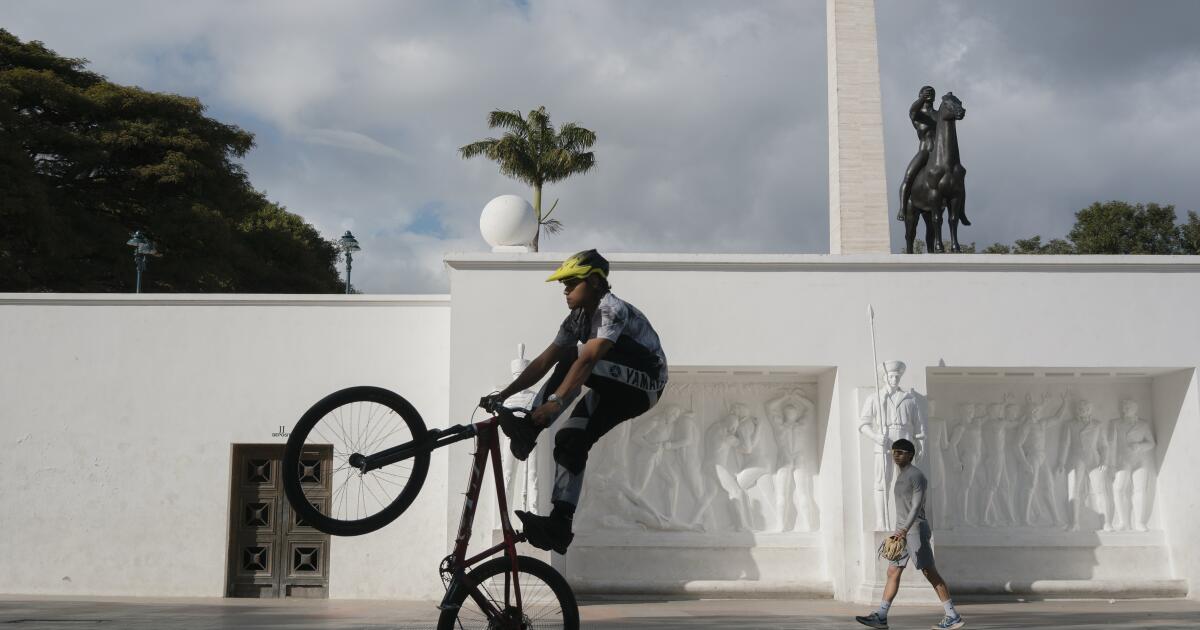US Naval Buildup Fuels Venezuelan Anxiety Amid Trump’s Shifting Policies
US Naval Buildup Fuels Venezuelan Anxiety Amid Trump’s Shifting Policies

As a formidable U.S. naval fleet steams towards the southern Caribbean, Venezuela is once again grappling with a renewed phase of anxiety, fear, and for some, a glimmer of hope. The Trump administration, now in its current term, has intensified its rhetoric against Venezuelan President Nicolás Maduro, labeling him a “narco-president” and reiterating a $50 million bounty on his head, fueling rumors of potential U.S. intervention across social media.
For Venezuelans enduring over a decade of hyperinflation, severe food shortages, and authoritarian rule, the latest developments add another layer of uncertainty to their daily struggles. Despite the palpable tension, many are striving to maintain a sense of normalcy. Leisy Torcatt, a 44-year-old mother of three, expressed, “We try to keep up our activities, our schedules despite the uncertainty… Our daily problems continue, but we cannot become paralyzed.”
The situation is further complicated by mixed signals from Washington. While the naval deployment, reportedly including over half a dozen warships and thousands of personnel, is officially aimed at deterring maritime narcotics trafficking, it echoes the hardline stance often championed by figures like Secretary of State Marco Rubio. Yet, shortly after beginning his current term, President Trump dispatched special envoy Richard Grenell to meet with Maduro, sparking hopes for improved relations. This engagement was followed by a significant prisoner exchange in July, where 10 U.S. citizens were released in return for hundreds of deported Venezuelan nationals.
Maduro’s government has responded to the U.S. maneuvers by bolstering militia sign-ups and deploying 15,000 troops to the Colombian border, dismissing the anti-smuggling justification for the naval buildup as “ridiculous.” Venezuela’s U.N. ambassador, Samuel Moncada, reiterated this sentiment just last Thursday. Meanwhile, ordinary citizens like journalist Mauricio Castillo, 28, voice a weariness, stating, “We are fed up. We cannot just stop our lives, put them on hold waiting for ‘something’ to happen.”
The ongoing crisis continues to drive a massive exodus, with some 8 million Venezuelans having left the country. While some diplomatic channels appear open, the visible military presence and strong rhetoric from the Trump administration ensure that the specter of intervention, whether real or perceived, remains a constant backdrop to the lives of Venezuelans.
Disclaimer: This content is aggregated from public sources online. Please verify information independently. If you believe your rights have been infringed, contact us for removal.